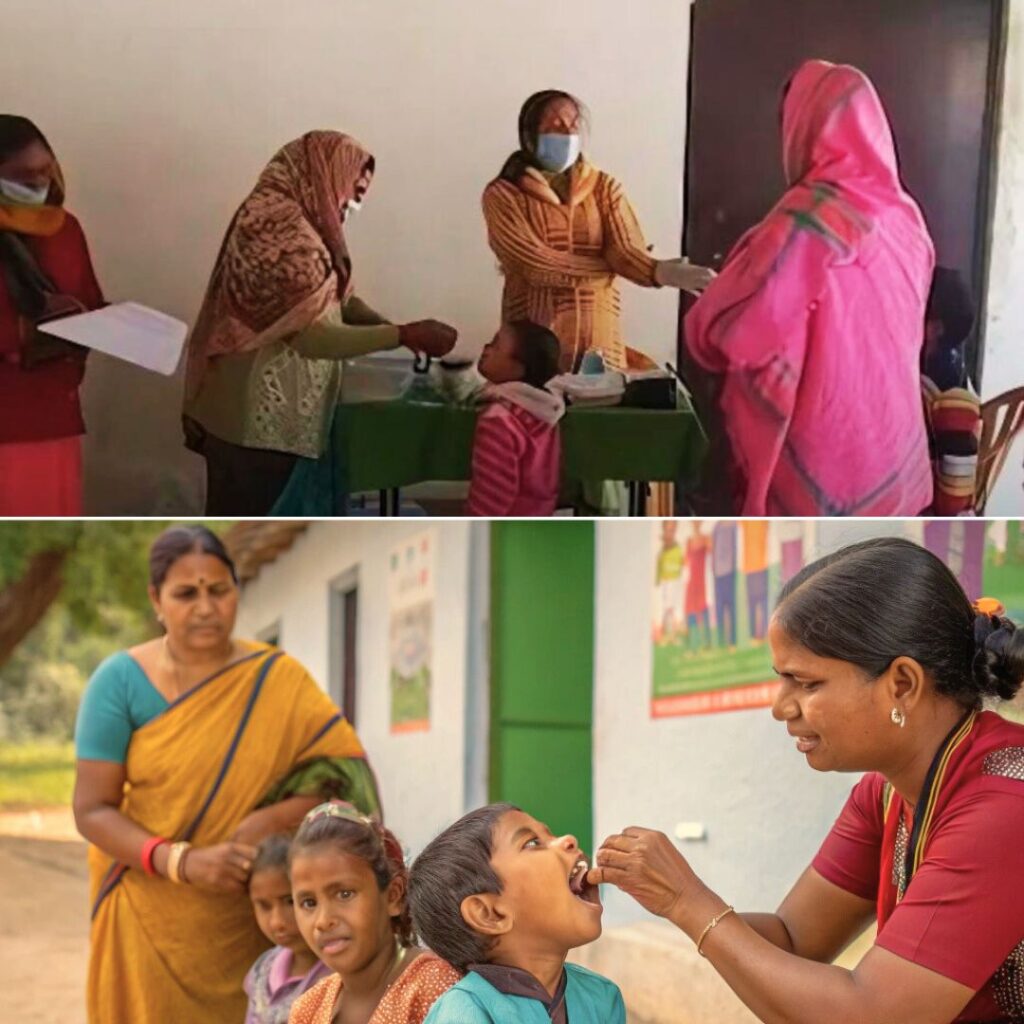Listening to stories at bedtime clearly can be one of the fondest childhood memories which we can count on. A favourite grandparent or even parents for the matter of fact have always been associated with these storytelling sessions. Us staring wide-eyed, imbibing in every bit of information is what one can commonly recollect from these sessions. These stories were woven around tales from the folklore and often came with a moral! These stories had their own charm, we learnt about The Ramayana, The Mahabharata or even The Aesop’s Fables through these stories.
One might think, why are we talking about storytelling? This is precisely what Kshitiz Anand and his wife Vatsala, have been doing for the last four-and-half years. Telling stories to little children, helping them learn and empowering young girls through their organisation Happy Horizon Trust.
A state which boasts of the highest number of successful candidates in IAS also has the lowest literacy rates in the country. Yes, we are talking about Bihar and this is where the Happy Horizons Trust is based out of. When The Logical Indian spoke to Kshitiz Anand, he said, “We began working with an aim to change the quality of education and we had to find a point intervention, which was students from primary schools. The biggest element missing in a classroom at the primary level was fun. I believe this is the most natural way in which children pick up things. I started off with this venture after completing my masters in the US. To be able to give back to the society is something that worked as a motivational force.”
Bringing about development through fun is what the duo wanted to do. The husband-wife duo hail from the state and they decided to handle the problem head on. They decided to focus on all the parameters that contribute to the development of a child. They began with conducting informal storytelling sessions at schools. “We always believed in storytelling as an integral part of our culture. We thought it was a great idea to engage with kids in this way,” he added.
They would ask questions and children would have a lot of fun in these sessions. This was completely opposite to the structured approach that normally exists in a classroom. They decided to take this practice ahead but this time the model was tweaked slightly and it was beneficial for the community as well.
Fellowship program
Kshitiz said, “In order to keep the system running even when both of us are not present in the schools, we had to create community leaders who would shoulder the responsibilities. After a bit of brainstorming, we decided to approach young girls and train them to take these sessions forward. Additionally, they will also be given a scholarship.”
This was a youth leadership development program for high school girls. As a part of their development program, they get training in leadership, how to conduct storytelling sessions, how to do craft-based learning and how to engage in peer learning etc. In the due course, they’ll be doing whatever a teacher conventionally doesn’t do in class. These youth leaders were given the name of champions. It all started with two champions and they were asked to go these primary schools and have fun with these children, just to ignite fun in the learning process that hardly exists in the educational system right now.
Team Happy Horizons Trust with the champions.
This leadership development program started with an extremely-poverty stricken school at a flood-prone region in Bihar, with an extremely underprivileged community. “Within a span of six months of working with this school, we saw a change in the mindset of the parents. They were really concerned about the child’s development.” Today, Happy Horizon Trust works across eleven schools in Bihar and has fourteen champions working across these schools and aiming at creating a change. These high school girls go to the primary schools to engage in fun sessions with the children, teach them arts and crafts, do fun activities with them.
Kshitiz said, “Building a stronger foundation at the primary level is very important to ensure that they don’t face problems as they go higher up the ladder. Most of class 8 and 9 students cannot read a sentence and are unable to elementary mathematics. Our organization’s focus is towards ensuring that this damage doesn’t happen again. We want to ensure there remains no gap in the education sector. At the same time, we want to empower these champions, shape them to become their community leaders and ensure them an empowered future.” This Fellowship program is three years long and they get to pick up newer skills as they advance in levels. At the end of three years, the champions are taken for an excursion where they get to meet people belonging to the social sector.
Impact These sessions help children from primary schools to grow in a more holistic way. Improved motor skills, improved analytical and logical capabilities and being…











